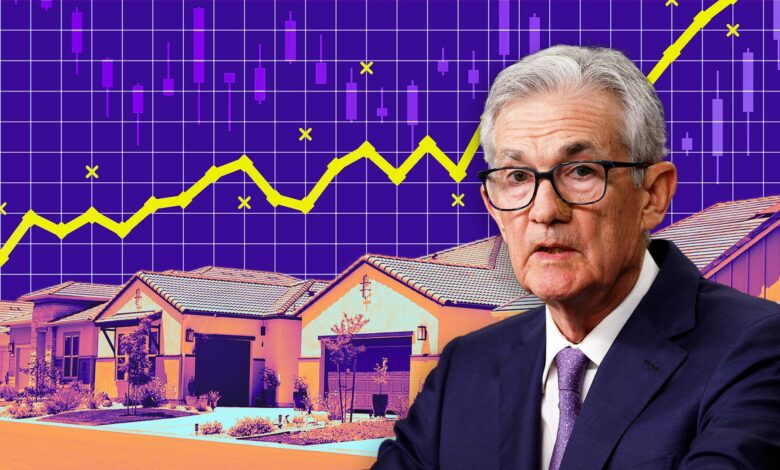Could Today’s Fed Meeting Lower Mortgage Rates Further?

Recent inflation numbers may have finally given the Federal Reserve the confidence it needs to cut rates in September. That was my takeaway from Fed Chairman Jerome Powell’s report comments after the central bank announced its decision to leave the interest rate unchanged this week. But, as Powell himself emphasized, “Certainty is not a word we have in our business.”
By keeping the Fed’s target rate high, the total cost of borrowing, including mortgages, remains high. Since the central bank began raising rates in early 2022 to curb inflation, the cost of buying a home has risen significantly.
So I understand why potential home buyers would like to see some mortgage rate relief. In his commentsPowell noted the “significant burden” of high inflation. What shocked me, however, was that he made no specific mention of the housing market or how steep mortgage rates and high prices have made homeownership unaffordable.
Why ‘Fed-speak’ matters for mortgage rates
When the Fed speaks, financial markets listen. And mortgage rates, which are influenced by investor expectations and bond yields, move too.
Experts tell me there is a growing case for the Fed to cut rates in September. Inflation is slowing and the labor market is weakening. In fact, the expectation of a rate cut is already priced into the mortgage market, which explains why we saw mortgage rates fall after weak labor market and inflation numbers in June.
In my view, this is the first time the Fed has given a more hopeful timetable for its first rate cut since 2020.
“The time is approaching. And if we get the data we hope to get, a policy rate cut could be on the table at the September meeting,” Powell said.
To be clear, a single rate cut won’t be a silver bullet for the housing market. Mortgage rates won’t fall overnight, the supply of homes won’t recover immediately, and home prices won’t suddenly become affordable. But a multi-year process of cutting rates across the board could help the housing market out of its current paralysis.
There is always a caveat, however. “The markets move based on expectations, not always on facts,” he said. Nicole RuethSVP of the Rueth Team Powered by Movement Mortgage. Since today’s mortgage rates already reflect expectations of a September rate cut, financial markets will be angry if that doesn’t happen.
Powell conveyed the message that future policy changes depend on “incoming data, the changing outlook and the balance of risks.” If economic data comes in worse than expected (i.e., inflation stalls), that could change market expectations for a rate cut in September and send mortgage rates higher again.
I can’t say I’ve never heard that before.
Despite high interest rates, there are still opportunities for home buyers
At some point, potential buyers will get tired of being pushed aside and sellers will lose their determination to hold on to their homes. That pent-up demand and tight inventory in the housing market will likely burst.
On paper, the current housing market is absolutely unaffordable. But many experts have recently told me that it is not a bad time to buy a home.
“The current market offers buyers the greatest opportunity for more inventory choices and negotiating power,” Rueth said. As rates fall, demand for homes will increase significantly and buyers will lose that advantage, she said.
Another advantage of buying today is that you can always refinance your mortgage later if interest rates drop, according to Greg Shermanaging director at NFM lending. House prices tend to rise every year. So if you hold off on buying until mortgage rates improve, you’ll likely be faced with higher house prices that will eat into your savings, Sher said.
If it fits within your budget, it’s worth checking out what’s currently on the market.




